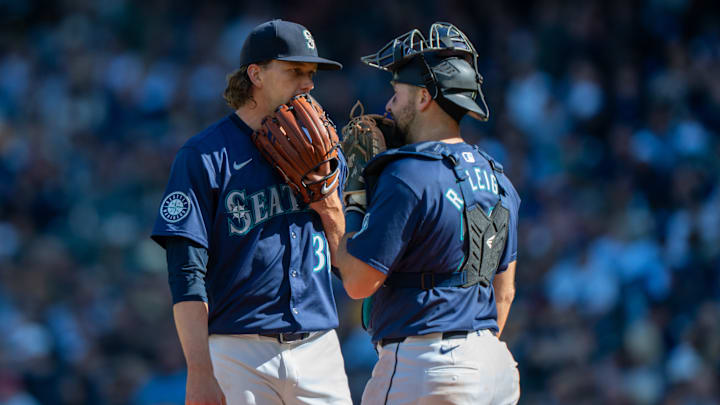As the Seattle Mariners' offseason gets underway and we start talking about all sorts of potential targets and positional fits, one thing fans have to keep in mind (unfortunately) is the payroll. Payroll almost dominates the headlines more than the actual moves the team makes.
One aspect of the offseason that affects payroll is the arbitration process. Players still under club control for more than three years (but fewer than six) are subject to raises in those seasons and they earn a higher salary than the Major League Minimum.
Both the player and the team present their proposed salary amounts and hopefully meet somewhere in the middle. If they do not find commonground, they will sit in front of a board of arbitrators to select one of the salaries based on the proposed case. Teams try very hard to avoid this, as it can be messy. Teams can also opt to non-tender a player (declining to offer them any arbitration money) and that player immediately becomes a free agent. That deadline is usually mid-November.
The Seattle Mariners will have 12 players eligible for arbitration. Every year, Matt Swartz of MLBTradeRumors.com releases his projected arbitration numbers. He is usually pretty accurate, giving fans insight into what their team's payroll may look like. It also gives fans some understanding of the decisions the team might make, some of them easier than others. Like every other organization, the Mariners have a few very obvious players they will tender contracts to, one or two who will get non-tendered, and a few that could go either way.
Arbitration-eligible Mariners players heading into the 2025 season
- Sam Haggerty - $900K
- Gabe Speier - $900K
- Tayler Saucedo - $1M
- JT Chargois - $1.7M
- Trenton Thorton - $2.1M
- Austin Voth - $2.2M
- Josh Rojas - $4.3M
- Luis Urias - $5M
- George Kirby - $5.5M
- Cal Raleigh - $5.6M
- Logan Gilbert - $8.1M
- Randy Arozarena - $11.7M
Right off the bat, a few no-brainers here as the Mariners will tender contracts to Randy Arozarena, Logan Gilbert, Cal Raleigh and George Kirby. Gilbert is a former Super-2 player, earning him an extra year of arbitration, and joining him in that distinction this year will be Kirby. Raleigh enters his first year of arbitration while Arozarena enters his third year (as a former Super-2 player himself, so he will have a fourth year of arb-eligible money next year).
The obvious player that will get non-tendered here is Luis Urias. His $5 million is way too high for nothing but a failed experiment to solve the team's third base issue. Even worse, that came after shipping away one of the most liked players in recent memory, Eugenio Suarez, even if his time with the M's was short. We would also be surprised if the team tendered contracts to all of the relievers on here. Between Voth, Chargois, Thorton, Saucedo and Speier, their projected arbitration numbers total almost $8 million. Considering how well this team does at identifying bullpen talent, they could move on from a couple of these players.
Haggerty will likely get non-tendered after an early season-ending injury. Rojas was a great defensive third baseman and carried this offense at the beginning of the year. Unfortunately, he was terrible in the second half, echoing the need for this team has to find a more long-term solution at the hot corner. He could be a super-utility option of the bench, a role that he would need to compete with Dylan Moore for, but it will all come down to how much money John Stanton is going to give Dipoto.
Ultimately, there shouldn't be any major surprises, or costly decisions for the Mariners here outside of their bullpen and Rojas' place on this team, if there is one. Though some of these contracts seem minimal, as we saw last year, every dollar matters, and this year's arbitration process could be telling for what the rest of the winter has in store for Mariners fans.
